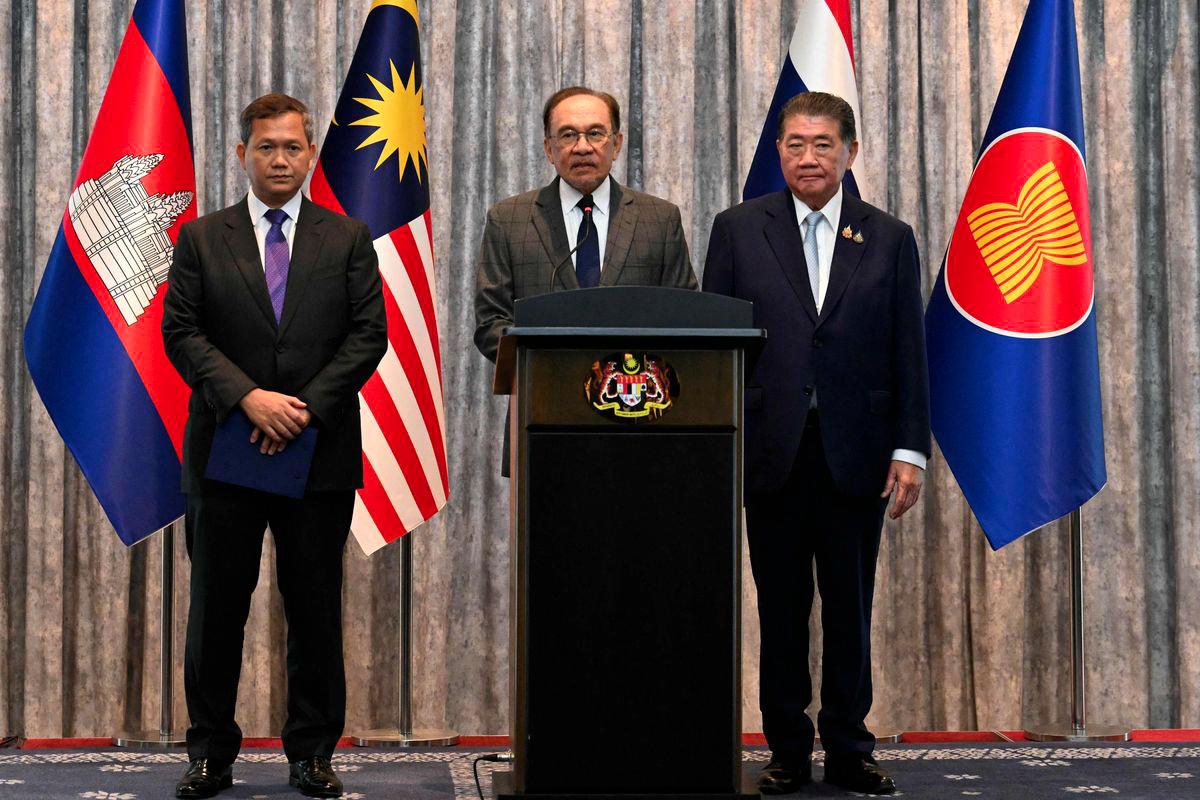PUTRAJAYA: Tensions along the Thailand-Cambodia border have been successfully defused, thanks to the spirit of regional cooperation and swift diplomatic intervention under the ASEAN framework.
The immediate and unconditional ceasefire agreed upon by both sides marks a significant diplomatic victory for ASEAN. Malaysia, serving as ASEAN Chair in 2025, played a pivotal role in de-escalating a situation from spiralling into a full-scale military conflict.
Prof Dr Muhammad Fuad Othman, an expert in international relations from Universiti Utara Malaysia’s School of International Studies (SoIS), hailed the development as a major diplomatic breakthrough for the region.
“Prime Minister Datuk Seri Anwar Ibrahim has done brilliantly and, without hesitation, put ASEAN first and influenced other member states to do the same,“ he told Bernama.
He said Malaysia has once again demonstrated its capability to uphold and maintain peace and security - not only regionally but also as a potential player on the global stage.
As ASEAN Chair, Muhammad Fuad noted that the Prime Minister acted decisively by “invoking his good office” to defuse tensions before they could escalate into open conflict.
“With the support of major powers, namely the United States and China, it is hoped that both parties will fully and unconditionally honour the ceasefire,“ he added.
He stressed that the outcome reflects ASEAN diplomacy at its best, characterised by quiet strength, regional unity, and an unwavering commitment to peace.
“The ASEAN region has enjoyed relative peace since the end of World War II and especially following the Cold War, laying the foundation for economic growth and long-term stability.
“ASEAN simply cannot afford internal conflicts among its members, as it risks undermining decades of progress built on mutual respect and adherence to the ASEAN Way,“ he said.
He said Malaysia’s swift and principled response under Anwar’s leadership reaffirms ASEAN’s core values and sends a strong signal that ASEAN cannot and will not allow internal strife to undermine its unity.
Meanwhile, Universiti Sains Malaysia’s Associate Professor of the School of Social Sciences, Dr Benny Teh Cheng Guan, described the achievement as a significant and positive development for regional diplomacy.
As ASEAN chair, Teh said Malaysia has “stepped up to the plate” by extending its “good offices” to mediate the issue.
“This is a positive step. The fact that Thailand and Cambodia chose to meet in Putrajaya and agreed to an immediate and unconditional ceasefire reflects the respect they have for Malaysia’s leadership role and their willingness to work out their differences in the spirit of ASEAN,“ he said.
“I think Malaysia’s relentless efforts in a way demonstrate the need to show a unified ASEAN that is capable of overcoming internal strife on its own.
“If the ceasefire holds and diplomacy prevails, it will certainly be an achievement for Malaysia’s chairmanship,“ he said.
He added that the development also reaffirms ASEAN’s capacity to uphold peace and regional stability from within.
The border tensions between Thailand and Cambodia began with a brief skirmish on May 28, escalating into a direct armed conflict that erupted on July 24.
As of July 26, the hostilities had claimed at least 32 lives and displaced up to 200,000 people across the affected border regions.
However, sustained diplomatic efforts to de-escalate the crisis culminated in face-to-face talks in Putrajaya yesterday, facilitated by Malaysia in its capacity as ASEAN Chair. - Bernama









